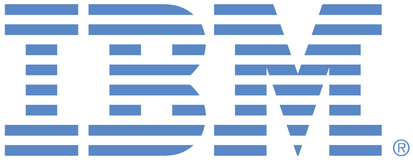
This portal is to open public enhancement requests against products and services offered by the IBM Data & AI organization. To view all of your ideas submitted to IBM, create and manage groups of Ideas, or create an idea explicitly set to be either visible by all (public) or visible only to you and IBM (private), use the IBM Unified Ideas Portal (https://ideas.ibm.com).
Shape the future of IBM!
We invite you to shape the future of IBM, including product roadmaps, by submitting ideas that matter to you the most. Here's how it works:
Search existing ideas
Start by searching and reviewing ideas and requests to enhance a product or service. Take a look at ideas others have posted, and add a comment, vote, or subscribe to updates on them if they matter to you. If you can't find what you are looking for,
Post your ideas
Post ideas and requests to enhance a product or service. Take a look at ideas others have posted and upvote them if they matter to you,
Post an idea
Upvote ideas that matter most to you
Get feedback from the IBM team to refine your idea
Specific links you will want to bookmark for future use
Welcome to the IBM Ideas Portal (https://www.ibm.com/ideas) - Use this site to find out additional information and details about the IBM Ideas process and statuses.
IBM Unified Ideas Portal (https://ideas.ibm.com) - Use this site to view all of your ideas, create new ideas for any IBM product, or search for ideas across all of IBM.
ideasibm@us.ibm.com - Use this email to suggest enhancements to the Ideas process or request help from IBM for submitting your Ideas.
IBM Employees should enter Ideas at https://ideas.ibm.com
An update, based on my testing on my customer's project I've been able to show some success at making use of the WKS types and subtypes in my collection.
What I did was use Query Expansion to add my WKS entity subtypes to the natural language query. For example:
{
"expansions": [{
"input_terms": [
"ball", "rocking horse", "yoyo"
],
"expanded_terms": [
"TOY"
]
}, {
"input_terms": [
"apple", "banana", "finger lime"
],
"expanded_terms": [
"FRUIT"
]
}
]
}
Where TOY and FRUIT were entity subtypes of PRODUCT in my WKS model.
When I added these query expansions to my collection that had my WKS model applied, I found that searching on a natural language query like this:
"How can I purchase a rocking horse"
Would also find documents talking about purchasing that had the TOY entity subtype listed against them.
In my testing I could see definite improvements using this method, with 30% more relevant documents found in the top 5 returned results against my test question set. I expect that we'd see the same or better improvements if this Aha! idea was implemented.
Fully agree, without Discovery leveraging a WKS custom model in a NLQ it is hard to justify the labor intensive work on a WKS custom model.
My interest in this feature is prompted by my customer (UBank) who are struggling to see the benefits of a WKS model that understands their products and work instructions, when it's not really used by the Natural Language Query feature to find the most relevant document.
I think we'd get some good benefit out of applying the WKS model to the query and having the annotations found influence the results. Currently the WKS model is producing metadata that can be filtered on, but even if I use NLU to apply the model to the query, I don't want to exclude results that don't include the entities and relationships detected in the natural language question, I just want to effect the sorting/ranking/relevance.